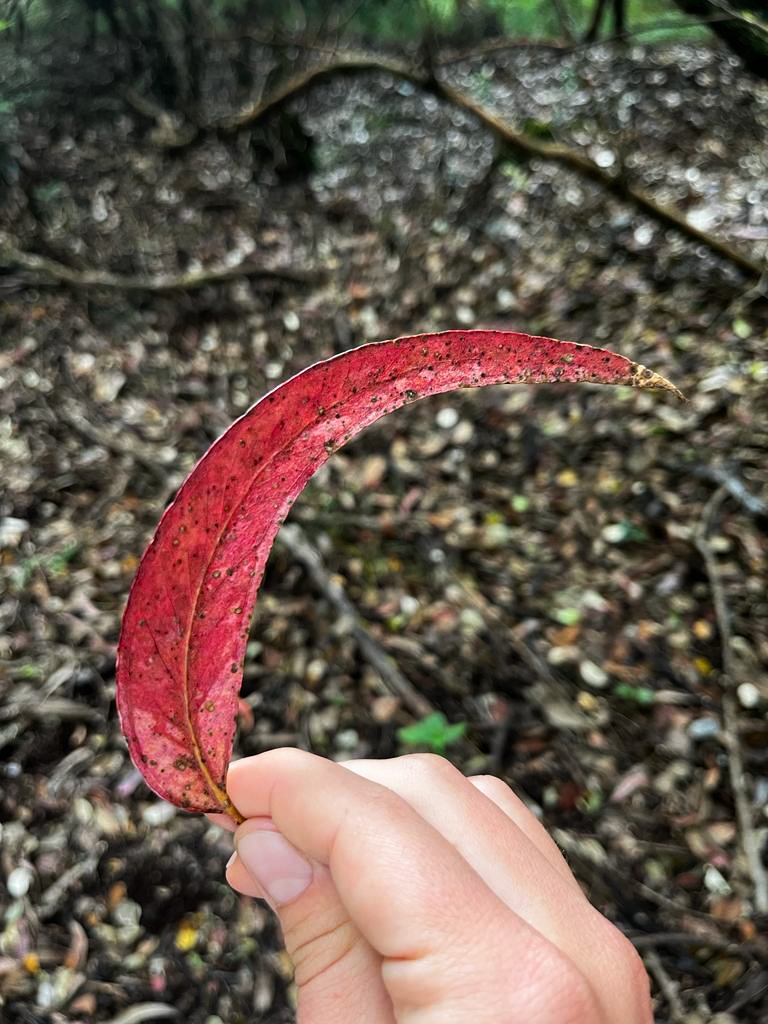WORDS AND PHOTOGRAPHY BYKavita Malstead
Listen to this story. Narrated by Kavita Malstead
17/12/2022 10:35 AM
It’s the first thing you register as you exit the airport. The smell of dirt, brought to the nose by a dry wind tinged on the edges with the scent of urine. You haven’t smelt this smell, touched foot in this country for four years. This scent, hanging in the air outside the airport, signals this very moment, the one your soul has been waiting for all these years. You are home. You are here. And because this is the first whiff of home, you don’t care that others would turn up their nose, screw up their faces with a look of disgust—the nostrils slightly flared and the lips twisted towards the nose, the eyebrows knit and the eyes smaller, a little closer together. This is one of the smells of your motherland, the first smell among many that signals your homecoming. You gulp big inhalations of breath into your lungs, like a prisoner who has been released from his cell after years of confinement breathing damp, musty air. You can’t get enough.

22/12/2022 7:10 AM
22/12/2022 7:10 AM
When I arrived home at the tail end of 2022, I was at a complete loss. I had been living in Italy for the past year, where I was about to put a down deposit on a gorgeous apartment in Rome, a stone’s throw away from The Vatican. My lover and I had moved down together after we graduated from our Master’s programme in gastronomy in the north of the country. I had a job working in the kitchen of the only female-owned Michelin-star restaurant in the city. I walked past world-renowned monuments such as the Trevi Fountain and the Colosseum every day on my way to work. Life was idyllic, it was perfect.
Two days before I signed the lease on my new apartment, I told my lover I was leaving. A week later, I packed up all my belongings, left them at an acquaintance’s house, and flew to India, with nothing to my name except a carry-on suitcase.
I met my family in Ooty. We had each returned from our own far-flung corners of the world to celebrate the winter holidays together at home, as a family, for the first time in six years. We spent a glorious three weeks together and then everyone left, one by one, until it was just me in the giant house that is my family home. Perched on the mountainside between Doddabetta Peak and Mynala junction along the Kotagiri Road, the house looks out over the Blue Mountain ranges, overlapping in the valley below.


27/12/2022 11:50 PM
27/12/2022 11:50 PM
You sit in the cavernous living room of your family home. It is dark, close to midnight, and everyone else has gone to sleep. The house is quiet except for the crackle of flame in the fireplace, the embers burning low and deep. This is the smell of home- the smoke of the young wattle branches as they release water and hiss, catch fire and burn, char into ashes that float up on gusts of wind that sneak down the chimney every so often.
Here, too, is the scent of eucalyptus: that pungent, clean, full-bodied smell that cuts through the room’s haze and the brain’s fogginess and calls attention to the breath. Eucalyptus, the oil your mother rubbed on your chest when you had a cold and couldn’t breathe at night. It cuts through your consciousness even now, alerts you to the thoughts half hidden, slowly coming out of the shadows and into the light, ready to be examined. You are safe enough, here by the fire in the house of your childhood, to pull out your buried secrets. No doubt the full light of day would prove too harsh, and the firelight suffices.
21/1/2023 8:30 AM
21/1/2023 8:30 AM

My name comes from the Sanskrit word for poem, poetry, poet: Kavita. There’s another Sanskrit word I know: Kriya. It means the cry of the soul and translates as a spiritual emergency or surrender. Kriya manifests in physical sickness, an outward symptom of the soul going through the throes of some universal crisis. Looking back, I am surprised I never heard the cry of my soul. I was muted to her warnings, so my body began to tell the wretched story instead. In Rome, I had stopped eating, consuming only a meal a day—nothing in the morning, something significant (or so I told myself) at midday and just the tiniest of morsels at night. My bowel movements had also slowed to a standstill. From August to January, I could count on two hands the number of times I successfully went to the bathroom without having to use a laxative. My stomach was in constant pain, it felt like there was a heaviness inside that wouldn’t go away. It kept me up at night and I had trouble sleeping.
Long before my intestines crunched up inside me, my period ceased. It stopped in January of 2022. At first, I thought it was because I was training for a half marathon I ran in May of that year, but after I stopped running and my exercise levelled off, it didn’t return. On almost all levels possible, my body was blocked. I couldn’t excrete, couldn’t bleed, couldn’t sleep, couldn’t eat.
While my body was clearly crying for renewal, this block extended past the purely physical and into my emotional state of being. I couldn’t cry, hadn’t cried at all over the ending of my last relationship, one that represented six years’ worth of living and growing and loving, the one that had come to an end when I made the decision to move to Italy over a year ago. No, I hadn’t cried, except for that one time when I woke up in the small hours of the morning weeping, my pillow soaked, from a dream in which a stranger told me she could see that I was grieving. This dream stranger told me the truth about my own feelings before I could ever accept them in my conscious state of being.
28/1/2023 3:55 PM
28/1/2023 3:55 PM
You watch as the woman who has worked for your family for years prepares you chai. She brings it to you twice daily, with a constancy that marks the passing of the hours from mid-morning to late-afternoon. Today, like always, she begins with bringing a small saucepan of water to a boil, and sprinkling tea leaves on top. As the water turns from clear to a stained brown, the smell of Nilgiris tea wafts towards you. Just as soon as it reaches your nose, the bitter scent is cut by the smooth pour of milk, which billows into the sauce-pan, colouring it a creamy brown, like muddy puddles after a monsoon rain. The scent of chai is layered, first the bitter bite of tea leaves, then the soothing milk, and finally, the rounded sweetness of sugar, ladled in plentiful, heaping spoonfuls. Just when you think “surely, this must be too much,” the last spoonful goes in with a shhh sound as the granules of sugar slide over the cusp on the spoon’s curve and into the tea water, and that last spoonful is what makes it that perfect cup.
Held now in your own two hands, you bring the steaming mug to your lips and sip. The chai slides down your throat, smooth and warm, an embrace you don’t know how you went so long without.
8/2/2023 6:05 PM
8/2/2023 6:05 PM
I come across a concept that explains my predicament so eloquently, I am left dumbstruck. For the first time, I begin to understand why I have come home through a language that is not my own, the language that is the mother tongue of this region. Thaai maṇam, a woman says to me, when I ask her why she chooses to live here now that all her children have grown and left for America. “I can’t explain it in English,” she says, “But in Tamil we call it thaai maṇam, scent of the mother.” And at this moment, I understand. There is an essence, a smell that calls me back, that speaks to me of familiarity, of an old, rooted, caring, nurturing love that calls me into its arms and reminds me of a mother’s embrace. Yet not an embrace, something more ephemeral, yet just as strong. A scent.


I am here because I have not known the way, and in my unseen wandering, the scent of the mother has guided me home. Not only have I returned to the motherland, I have returned to myself. Slowly, I have felt myself unblocking. Within the first two weeks of my life here alone, my gut started to heal and I began going to the bathroom unaided and regularly. The brick in my stomach dissipated, along with the constant feeling of heaviness. A weight lifted from my mind and belly simultaneously. My period also returned, and with it a new fertility not only of my body, but of my soul. I still hardly cry, but I feel a new panorama of feelings that up till now I’ve been studiously avoiding. The Nilgiris has wrapped her verdant arms around me, telling me I am free to find myself anew, here in the familiarity of the one who watches over me, the one whose scent I know.
19/3/2023 2:45 PM

You are walking the same forest path your feet have trod over and over, decades ago. Though it has been years now, you’d know it with your eyes closed. Every stump along the way, every root you could possibly trip over, every twist along the stretch of forest that connects your house to the main road. Long ago, before you even had a road to your house, you made this trek in and out every day to school. Today, the earth is fresh beneath your feet. It rained last night and the forest floor is soft and dense. The smell of eucalyptus hangs in the air. You see the sickle-shaped leaves strewn over the path, some pale blue-green, and others a deep, burnished red.
An image comes to you. It is agricultural, born of the red earth beneath your feet and the smell of loam, the fertile humus of the Nilgiris forest, fresh and soaked through with rain. It is an image of seeds thrown on hardened ground. It matters not what abundance the seeds may contain—be they vegetable, fruit or flower. Fallen on unyielding soil, they can never hope to root. But if the seeds are thrown on fertile ground, the image changes. They will find the nutrients they need to survive, and if the soil is rich, they will thrive. Only then will you be able to tell them apart by the characteristics they bear. You make a promise on the single eucalyptus leaf lying parallel to the deepest crease of your palm: you will prepare the soil of your soul for the seeds to come.
7/4/2023 7:15 PM
7/4/2023 7:15 PM
I know my mother, her scent carries with me. Thaai maṇam is chai—sweet milk and honey, eucalyptus breathed in heavily, rich dark loam beneath the forest canopy, flowing streams after a monsoon rain, bodily fluids—blood and urine. What I don’t know is myself. But as a child of The Nilgiris, there are some things I do know about the kinds of roots that will take hold in the soil of my soul. There will be shola in my forest, big red rhododendron flowers in the thicket, wattle with their tiny yellow flowers waving in the mountain breeze, and eucalyptus, blue and water resistant. And there will be other trees whose seeds have yet to be planted. These images are with me as I prepare once again to fling my body across the expanse of the globe. I leave for America in a week, with no plans of immediate return, though return I will. These scents—my mother’s, now my own—will follow me wherever I go. I know now, the scent of the Mother is with me, and I am she.
I am renewed.

